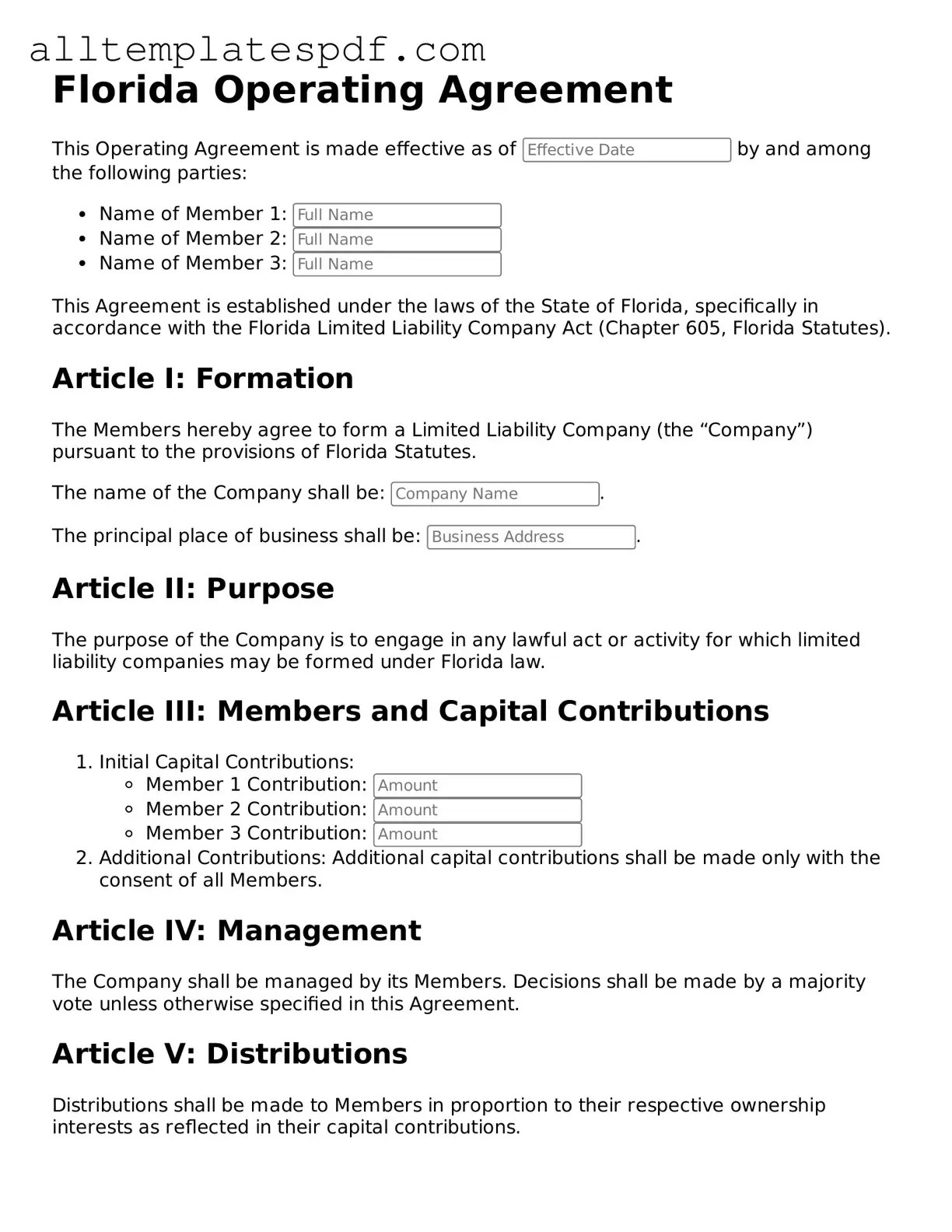Blank Operating Agreement Template for the State of Florida
The Florida Operating Agreement form is a crucial document that outlines the management structure and operational procedures of a limited liability company (LLC) in Florida. It serves as a roadmap for members, detailing their rights, responsibilities, and the rules governing the business. Understanding and completing this form is essential for ensuring compliance and smooth operation; start by filling out the form by clicking the button below.
Open Editor

Blank Operating Agreement Template for the State of Florida
Open Editor
Fast and easy form completion
Complete Operating Agreement digitally — fast and easy.
Open Editor
or
↓ Operating Agreement PDF Form
